Getting dirty clothing clean again and ready to wear is a fundamental aspect of everyone’s daily life. Technological innovations coupled with measures that improve the energy and water efficiency of washing machines and the environmental performance of detergents alter the ways in which modern households do their laundry.
Fragrance and laundry are deeply enmeshed in the communication of the “fresh and clean” message, which can vary greatly, depending on the targeted consumer base, and the convergence of lifestyle trends with the vast versatility of scent provided by perfume manufacturers intrinsically reinforce and elevate consumer purchasing.
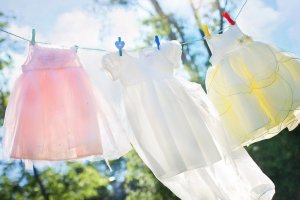
Branded products in the modern marketplace proliferate at every corner and vie for customer attention along every store aisle. This is no less the case in the bustling laundry aisle of any supermarket chain. How can detergent manufacturers differentiate their brands from a sea of others touting the same promises? The winning factor beyond performance capabilities is the undeniable allure of scent.
The 4 Life-Style Sectors Of Detergent Fragrances
While fragrance and laundry have been advertising bedfellows for many decades, newer trends have seeped into the detergent picture that fall into four distinct life-style sectors. These are: customization, durability, sensitivity and sustainability. Each of these aspects present similar, yet completely diverse narratives and opportunities for fragrance development, and successful application depends entirely on the proper targeting of the consumer.
Customization
Customization of scent has transformed the necessary but mundane experience of doing the family laundry into a fun and even playful household adventure. This is largely due to the broad range of scented products available today that appeal to the consumer’s thirst for choice, which is vast, as options range from detergent pods to scent boosters, the ability to mix and match scents and new ways of layering the smell of clean cotton or linen, which provide an added dimension to the selected aroma.
According to Arnold Zlotnik (pictured below), President and CEO of Alpha Aromatics, “Consumers are more engaged with scented products than ever before and lean towards fragrant experiences that inspire a positive emotional connection. Effective master perfumers must aim to create emotionally inspiring fragrance blends that customize the experience and cement a bond between commercial brands and those using them.”

In recent years, scent boosters, both in mainstream and specialty niche brands, have become innovative channels for fragrance delivery, activating shopper enthusiasm because of the ability they offer to control scent by adding a little or a lot, depending on personal preference.
Sensitivity
Sensitivity to chemicals can be an issue both for children and adults, as manufacturers are well aware that human skin sometimes reacts to the ingredients in standard detergents in the form of a condition known as contact dermatitis.
Mintel reports that that nearly 3 out of 10 adults worry about laundry products irritating their skin, making it a top-cited concern in the laundry category. Allergies or sensitivities to laundry detergent can develop either at first or after repeated exposure. Using fragrance-and dye-free detergents can prevent rashes, and often an extra run through a hot, hot rinse cycle is all that is needed to keep detergent residue from building up on clothes.
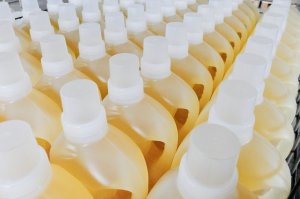
The distinction between “sensitive” and “unscented” when seen on a box of laundry detergent is important to understand because the terms are not synonymous. Unscented means that the laundry product does not have any obvious aroma, but it does not indicate that a particular detergent is free of fragrance chemicals. Hypo-allergenic means the detergent is safe for use on sensitive skin.
To further confuse the issue, fragrance-free signifies being free of artificial dyes and any sort of fragrance, natural or artificial. It can also denote being completely free of fabric softeners and optical brighteners. Consumers seeking sensitive and hypoallergenic formulations can find detergents with fragrances that have been softened to accommodate this market sector.
Sustainability
While eco-friendly laundry detergents have been a part of the decades old movement towards sustainability, the modern populace of nine billion people still need better answers as to how to differentiate the many ‘green’ labels and promises found on the boxes of laundry detergents from each other. Some brands design dispensers that can only pump out the correct dose of detergent, illustrating how subtle design can influence behavior.
A long term solution however lies in the dynamic field of smart technology where textiles can be designed to repel dirt and odors, so they need less washing. In addition, “smart” clothes in the future may well be endowed with the capacity to inform ‘intelligent’ machines about their weight and washing needs, and virtually waterless washing machines may become standard fare as well as new buildings designating specific space for drying clothes.
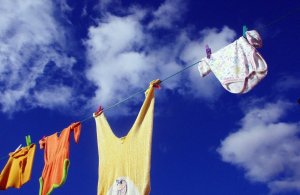
Eco friendly products of all types that are infused by fragrance appeal to the Millennial and Generation Z consumers (those born between 1996-2010, following millennials.). Environmentally-safe laundry detergents are among the most important items hallmarking this trend. The label tells the story, as phosphates, chlorine, dyes, parabens, and other ingredients potentially perceived as harmful have been removed, and are so noted on the packaging. In addition and without intent, ‘green’ laundry products serendipitously align perfectly with the broader health and wellness trend.
A recent national survey comprised of 1,000 consumers who purchased/used ‘natural’ cleaning products concluded that participants felt positive about their buying decisions when they knew that their purchase would make a difference for both their families and the earth.
Sixty-two percent of respondents claimed they purchased natural cleaning products because they believed they were healthier than mainstream options. Fifty-five percent claimed that natural products were safer for the environment.
Durability
Another popular laundry detergent claim is the promise of fragrance durability and freshness over time. For those with active and busy lifestyles where time is always of the essence and laundry routines may be intermittent, this factor is most common among younger adults (aged 18-34).
For this demographic, Mintel reported above usage and/or interest in long-lasting scents (85% as opposed to 74% for the general population) and customized scents (81% to 66%, respectively) for this same target group.
Scent longevity has also presented an important proposition concerning fragrance eco-systems. The most successful in this regard is Proctor & Gamble, who dominate more than 50% of the market share. These systems range across many products that span the much broader household product category.
Insuring that positive experiences linger for the consumer, Proctor & Gamble has introduced layered laundry scents that become more intense, as they include both fabric softener and air-care.
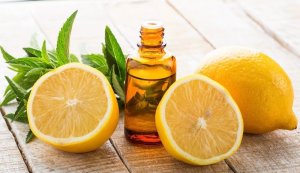
Here are 9 factors to look for in a quality fragrance oil purchaser.
Facts And Statistics About The Soap and Detergent Industry
The international soap and detergent industry primarily includes companies that are engaged in manufacturing soap, synthetic organic detergents, inorganic alkaline detergents, and crude and refined glycerin from vegetable oils and animal fats.
According to experts, there is a significant link between a country’s standard of living and its consumption of both soap and detergent products. It is expected that the industry will continue to flourish in both highly industrialized and developing nations because consumers are become more sophisticated in their choices of fragrances for their homes, cars, candles and ambient air-care. This has led to the option of diverse fragrance choices for laundry detergent products as well.
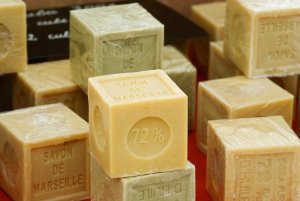
Learn more about our process of creating fragrances for soap manufacturers.
According to the latest Market Study Report, the global laundry detergent market was valued at $133.3 billion in 2016, with a strong and steady growth at a 4.9% CAGR. This market is anticipated to reach USD $215.3 billion by 2026. Several studies agree that more than 65% of the global population reported doing laundry at least twice per week and the rest do it almost daily. Fabric conditioner sales have increased at an average of over 9% in the past three to four years and are currently the fastest selling product category across the current laundry industry landscape.
The commercial demand for detergents has increased at a faster rate over the course of the last ten years due to number of factors which include: the progressive availability of washing machines and diverse laundry services for both residential and commercial purposes; rising disposable income in the Asia Pacific region and other developing markets and the shift from traditional hand-washing to appliance-supported methods.
These aspects have expanded automatic detergent consumption and the powder product category. By product type, the market primarily covers laundry detergent, soap, dishwashing detergent, soap and others.
Changing Consumer Demands
Our chief perfumers are always at the top of their game when it comes to understanding the complex and fickle demands of the modern consumer. They know that savvy shoppers are seeking efficiency, reliability and reasonable pricing when they purchase laundry-related products. They will not settle for detergents that do not disinfect, eliminate stains, protect, preserve and are washable for all fabric colors.
Other desired qualities include: no harsh chemicals, products that are eco-friendly and fragrance/scent or no scent, which for liquid laundry detergents are often lavender, tropical mist and/or fresh rain aromas. Smaller, ‘niche’ brands are also capitalizing on the ongoing demand for one-of-a-kind fragrances.
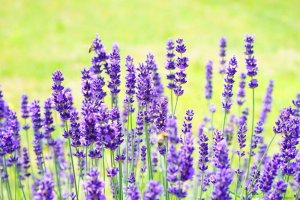
Discover the calming qualities of lavender when used in scented products.
The Major Detergent Manufacturers in The United States
According to Statista, Procter & Gamble was the the leading liquid laundry detergent vendor in the United States in 2017, controlling over 55 percent of the total market. Arm & Hammer was the fourth ranked liquid laundry detergent in the United States with about $244.77 million U.S. dollars worth of sales in 2018. Other important detergent manufacturers companies include: Church & Dwight; Colgate-Palmolive; Ecolab; Alpha Chemical; Clean Bubbles, Inc; Henkel, the American subsidiary of Henkel AG & Co; Johnson & Johnson; Unilever and US Chemical.
Alpha Aromatics And Detergent Fragrance Creation
We are an internationally acclaimed fragrance creation company that was born during the aftermath of World War II. Our focus has remained unchanged over the course of the last seven decades, and is simply to build great scents that build great brands.
Located in suburban Pittsburgh, Pennsylvania, we are known for our masterful ability to transform the vision of any enterprise into an unforgettable olfactory communion between products and consumers that is certain to attract and inspire traffic and induce brand loyalty.
The following list represents the latest trends in the roster of our fragrances that are often utilized in the formulation of popular laundry detergents.
Black Orchid Dragon Fruit
This potent fragrance opens with a dazzling top note comprised of appealing, green and juicy Dragon Fruit mingled with sweet, dark berry-like Cassis, and succulent Pineapple. These soon fade into a heart note of luxurious and alluring Black Orchid, soft, clean calla lily and green, aqueous violet. The fragrance finishes with a base note of aromatic, sensual White Musk and sun-dried, ozonic Driftwood.
Pomelo Blossom Jasmine
Inspiring memories of summer fun by the sunny shore, crisp, clean laundered linen sheets and shimmering iced water, this scent begins with a top note blend of sharp, grapefruit-infused Pomelo, fresh Melon and sweet, acidic, woody and slightly floral Berry. These soon fade into a heart note amalgam of sweet, intoxicating Night Blooming Jasmine, fresh, floral and sugary Orange Blossom and light, bitter Neroli. Rich, full Vanilla Bean, sensual Musk and dark, earthy Patchouli finish this memorable fragrance.
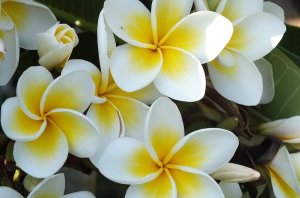
Lavender Blossom And Saffron
Juicy, peppery and succulent Mandarin, sour, sweet Lemon and tart, tangy Grapefruit comprise the top notes of this well-liked detergent fragrance. A heart note of spicy, warm and sensual Ginger, bittersweet, soft and intimate Saffron and rich soothing Lavender flows into a finishing base note of warm Cedarwood, sensual Patchouli, and animalistic, aromatic Musk.
Pink Citron Watercress
Dry aromatic Citron, fresh melon and fruity green pear form the top notes of this popular laundry scent. These elements soon evaporate into a heart note of rich and slightly bitter Watercress and honey-like Tulip. The scent completes with aspects of sensual Musk and clear, floral Waterlily.
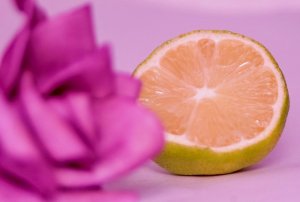
Passionflower And Iris
Opening with a top note of light, sweet, tart Red Currant, succulent, honey-like Mandarin and fresh, green apple, these elements soon give way to a heart note of powdery, starchy and earthy Blue Iris, tropical, spicy Plumeria and fresh, sweet and floral Orange Blossom. Warm, rich honey-like Amber, enticing and elegant Vanilla and creamy, woody Sandalwood complete this sweet, fruity fragrance.

In conclusion
Fragrances formulated by our perfumers have helped to cement consumer and loyalty to brands for decades. Our range of products are expansive, versatile, and dynamic, and they reflect the needs of all industries located anywhere in the world.
In the words of Roger Howell, Alpha’s Vice President and chief perfumer:.…The global brands we work with understand our cutting edge capabilities… our unique position in the industry and our vast capabilities that reach across all fragrance applications.”
So call our team today and discover the olfactory magic the can perform for your brand of laundry related products and that all-important and often elusive company bottom line.
Final thought on laundry: Sometimes I feel like throwing in the towel but that would only mean more laundry for me. ~ Pinterest

What are the 4 life-style sectors of detergent fragrances?
1) Customization
2) Durability
3) Sensitivity
4) Sustainability
Who are the major detergent manufacturers in the United States?
Church & Dwight; Colgate-Palmolive; Ecolab; Alpha Chemical; Clean Bubbles, Inc; Henkel, the American subsidiary of Henkel AG & Co; Johnson & Johnson; Unilever and US Chemical.
What are the top trending fragrances for detergent products?
1) Black Orchid Dragon Fruit
2) Pomelo Blossom Jasmine
3) Lavender Blossom And Saffron
4) Pink Citron Watercress
5) Passionflower And Iris
Photo Credits: Pixabay
 alpha aromatics®
alpha aromatics®